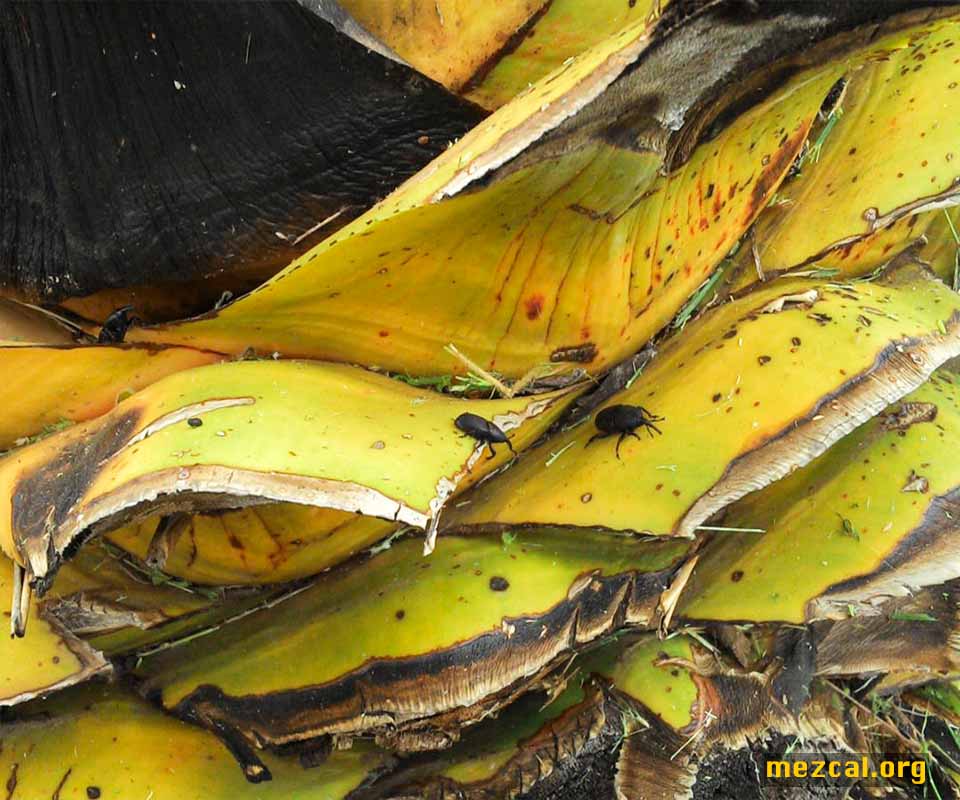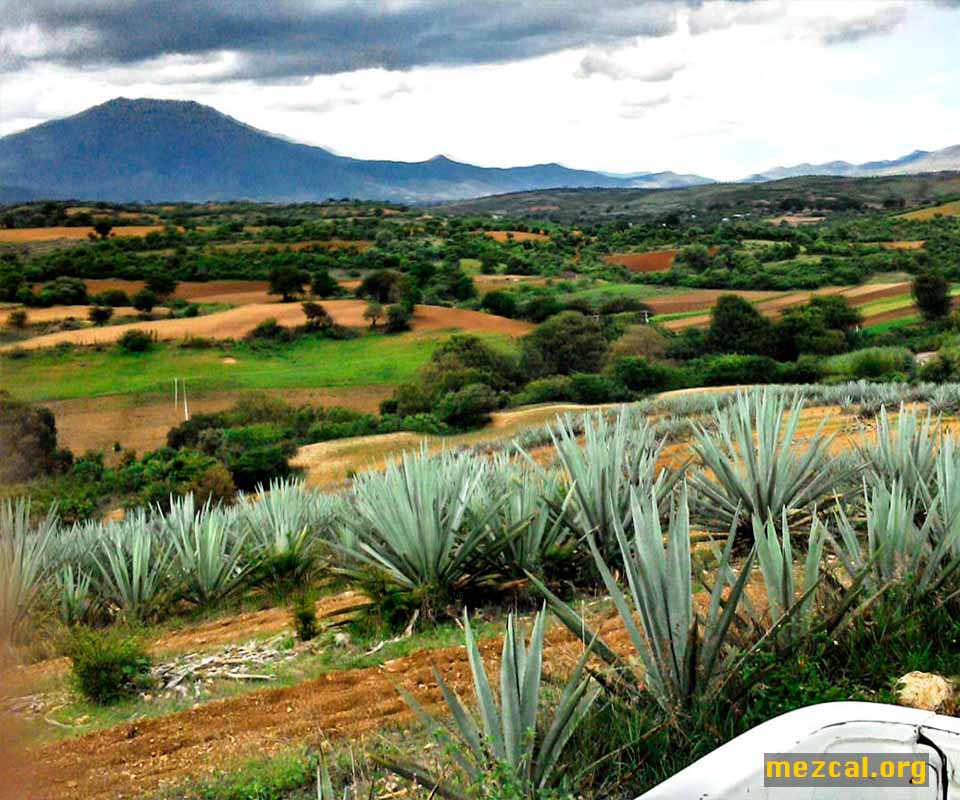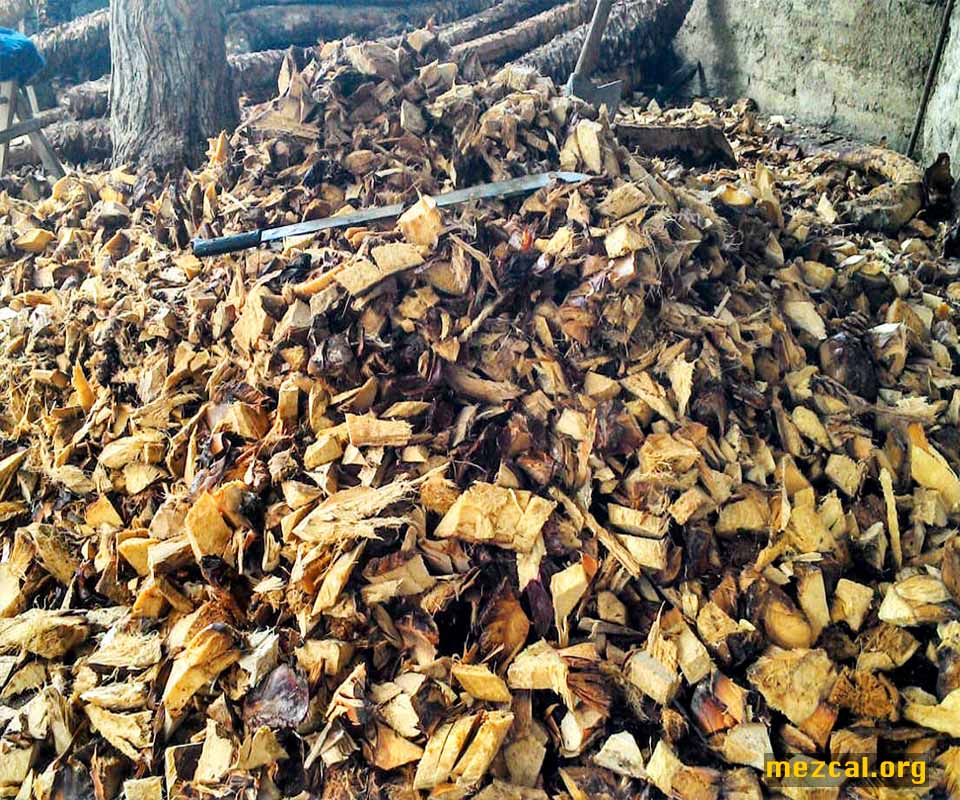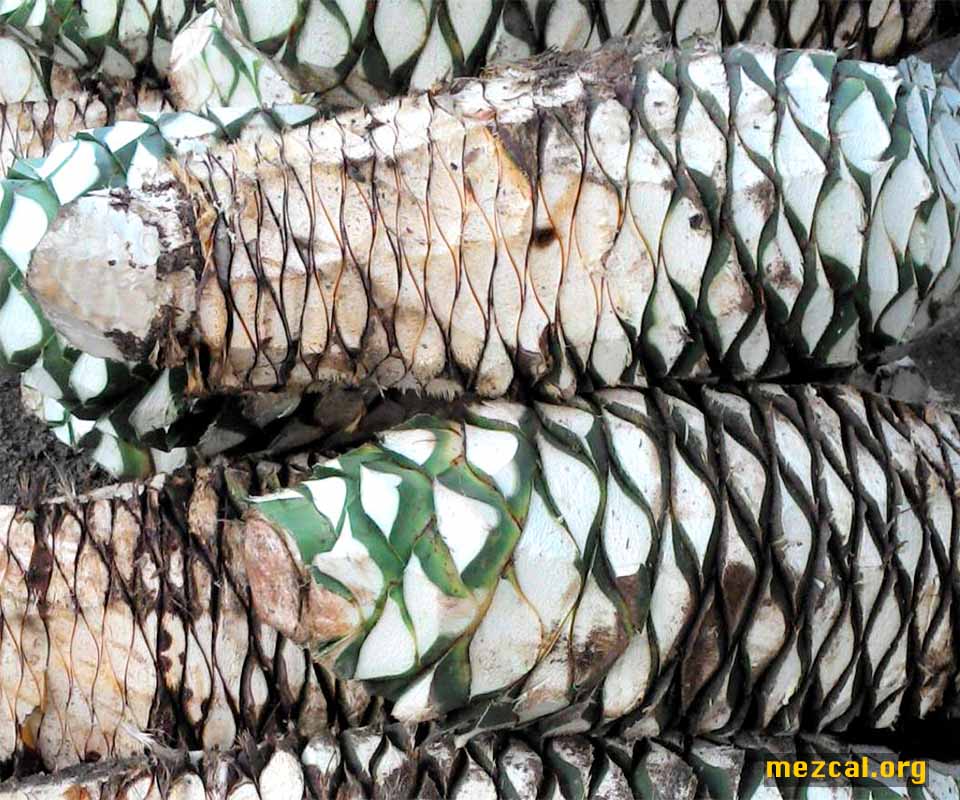Scyphophorus acupunctatus, commonly known as the agave weevil, is an insect pest that represents a significant threat to Agave spp. plantations. This insect is particularly damaging to agave species used in mezcal and tequila production. Initial damage is manifested on agave plants by gummy secretions and a dark brown, viscous, sticky exudate, which appears near small punctures in the leaves. These signs are indicative of the insect's presence and are usually accompanied by a distinctive odor. As the infestation progresses, adult weevils deposit eggs that hatch into larvae. These larvae feed on the maguey's piña, the heart of the plant, causing severe damage that can expose the agave to a variety of pathogenic microorganisms, resulting in rotting and eventual death of the plant.
Management of Scyphophorus acupunctatus is crucial to agave agriculture and, by extension, to the mezcal and tequila industry. Control methods must be implemented in a timely manner to prevent the spread of the pest and minimize the economic impact. Strategies include regular monitoring of plantations for early signs of infestation, the use of traps and attractants, as well as the application of biological control measures. Continued research is essential to develop more effective and sustainable control methods that protect not only agave plantations, but also the ecosystem and biodiversity of the producing regions.











Comments